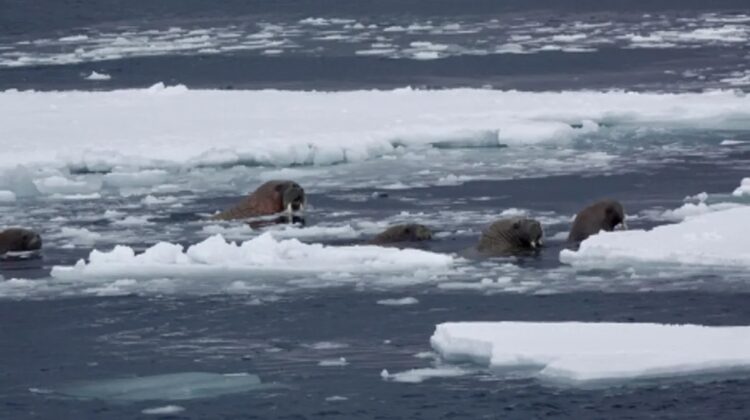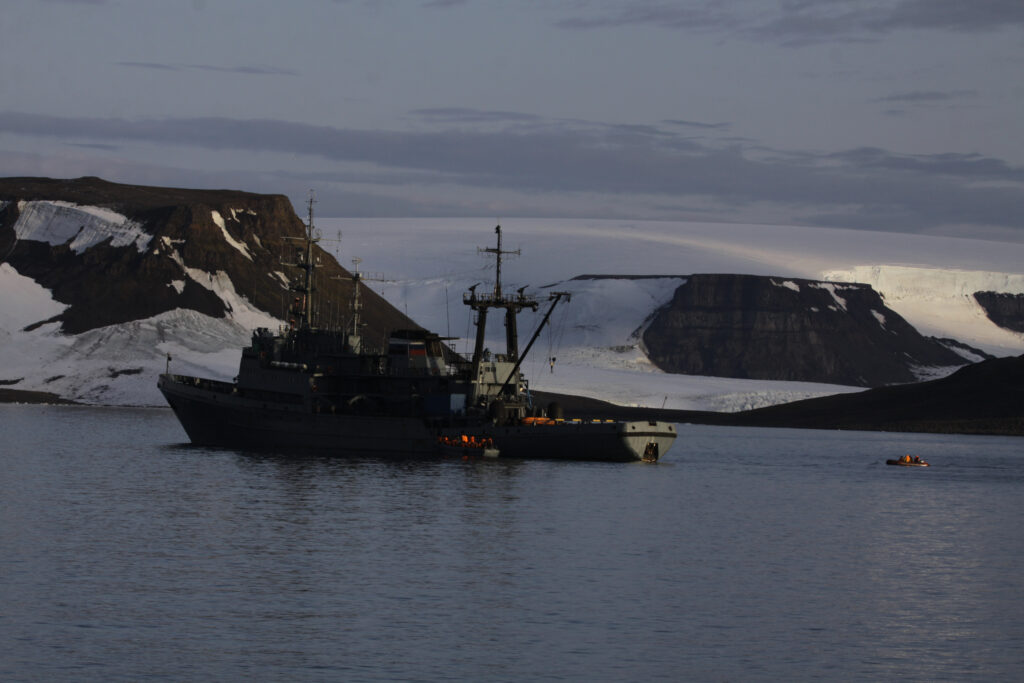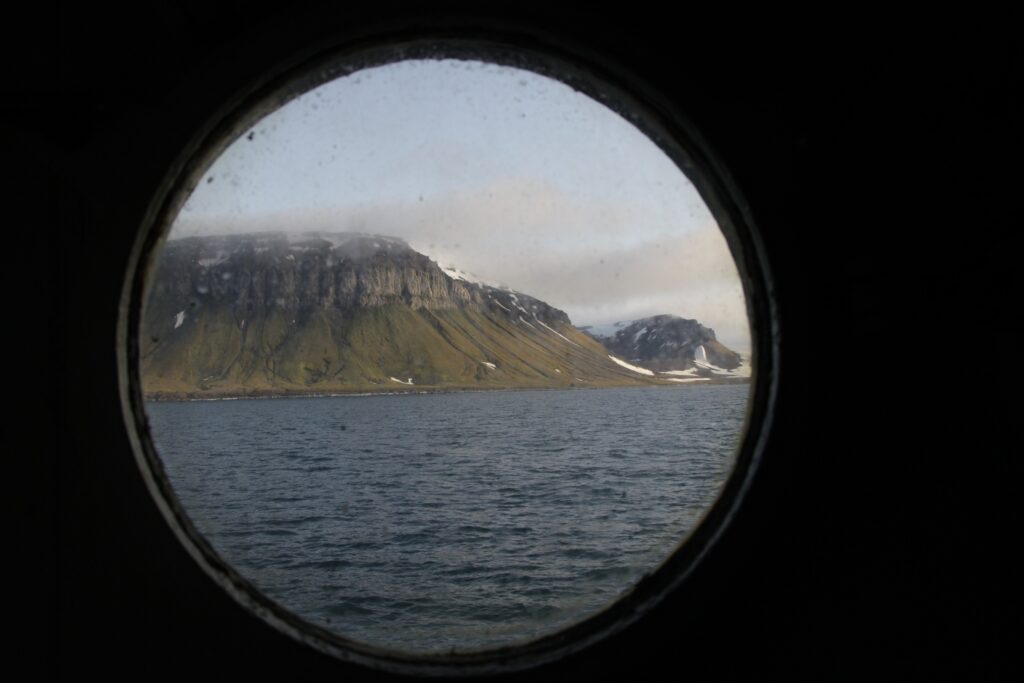
In the Franz Josef Land archipelago, a female walrus defending her calf assaulted and sank a Russian Navy vessel. As long as everyone on board is safe, the expedition, which has been tracing the footsteps of many explorers from the 19th century, will continue.
The incidents happened during a combined expedition with the Russian Geographical Society, which was exploring the far-flung islands using the navy tug Altai. According to a press report (in Russian) from the Geographical Society, one of the Altai’s landing craft was attacked by a walrus, while the Altai itself appears to have been undamaged.
“The squad leader acted swiftly, preventing a disaster even though the boat sank. The announcement states that all landing participants arrived at the coast safely.
The expedition’s problems with walruses at Cape Geller were also recorded by the Russian Northern Fleet, from where the Altai originates, adding that the crew had to leave. However, the navy story merely mentions that researchers had to flee from the marine creatures quickly, probably out of fear that nervous neighboring states may begin recruiting walruses.

The Barents Observer, a journalist-owned publication covering Arctic news, issued an English-language description of the events in question, bringing it to the attention of a wider audience.
Only somewhat farther north than Greenland’s most northern regions, the archipelago’s almost 200 islands are situated within 10 degrees of the North Pole. Despite the fact that there were military installations there during the Cold War, the islands have been a protected natural area since 1994, protecting the walrus from retaliation.
The Geographical Society’s images demonstrate that ice is currently only marginally interfering with sailing in the area. This is a significant improvement over the 19th century, when expeditions to the region occasionally glimpsed the islands but were prevented from getting there by ice, even during the height of summer.

Walruses were once hunted in the region, but since 1952, they have been protected, and their numbers have increased to over 1,000. It is unknown if they face the same dangers from sea ice loss as their more abundant Alaskan counterparts. The threats our emissions bring to their Arctic climate and habitats, which were so cruelly depicted in David Attenborough’s recent Our Planet documentary of the region, give the pinnipeds plenty of reasons to be angry at humans in addition to the previous hunting.
The walrus is thought to have destroyed a rubber blow-up landing craft, but if the local mammals decide to pursue larger ships as a result of their success, the mission would benefit from a carpenter.
[H/T: ScienceAlert]

Leave a Reply